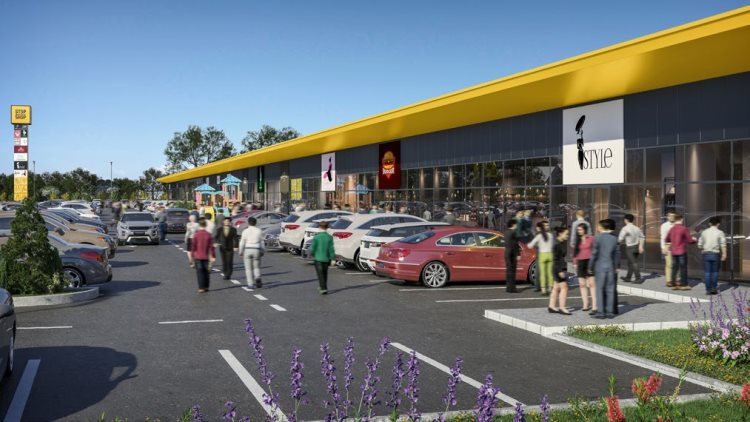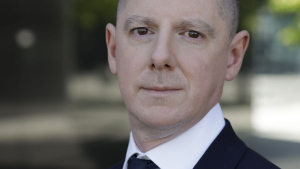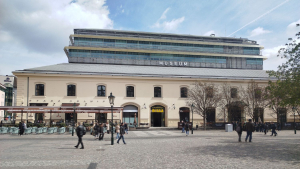
Immofinanz leads the development of retail parks across Croatia, with plans for surpassing Supernova and becoming the market leader in Croatia, while local developers remain active as well, focusing on undersupplied locations and the outskirts of large cities.
Last month, Immofinanz presented the newest additions to its Stop Shop retail parks portfolio in Croatia, starting with a 3,000 sqm NLA expansion of their existing Stop Shop retail park in Ludbreg, a small city in north-eastern Croatia, followed by the opening of their so far largest retail park in Velika Gorica, the sixth largest Croatian city which was until then the only large city without any kind of shopping centre. Immofinanz started its retail park expansion in Croatia in 2018, with the acquisition of the existing Osijek and Valpovo retail parks from Austrian developer Mid BAU, after which the acquisition of Ludbreg and Našice retail parks from local developers followed, while their first greenfield developments in Croatia were a retail park in Kaštela near Split, opened in May 2022, and the aforementioned retail park Velika Gorica which brought Immofinanz’s Stop Shop portfolio to six assets. In the last two years, Immofinanz secured land plots for future development across Croatia, focusing on small- and mid-sized cities, usually microregional centres serviced with quality road networks. Their plan is to open more than 20 additional Stop Shop locations in the mid-term, with an investment volume of approx. €250 million. Currently, their retail parks are under construction in Gospić, Daruvar, Vinkovci and Labin, hence their Croatian portfolio is expected to increase to two digits in short term.
While at the moment, Immofinanz is the most active player in the retail park segment and is expected to surpass Supernova which is currently the market leader with 10 retail parks and 5 shopping centres, they are not the only developer that discovered the attractiveness of retail parks as an asset in Croatia and their resilience to various types of crises, including the recent pandemic-imposed one. This includes a group of local entrepreneurs and their brand Park & Shop, which was first introduced with the opening of a retail park in the city of Krk on the synonymous island and will be followed by a large retail park in the eastern outskirts of Zagreb, while they already secured land for their next project in the hinterland of Split. BMP Asset is an even more active group of local developers that has recently launched the Hey Park brand of retail parks, with six of them expected to be opened in the mid-term across Croatia, the first two ones in Zaprešić and Zadar. Finally, Mato Škojo, one of the wealthiest Croatians who in 2019 sold his successful Mlinar bakery company and chain to Mid Europa Partners, has also entered the retail park development market, his first project being completed in 2021 in the south-eastern outskirts of Zagreb, while the second one opened last week in one of Zagreb’s most prominent streets between the city centre and city’s eastern exit.
Aside from the mentioned resilience proved during the coronavirus crisis and the retail undersupply in numerous locations across Croatia, there are several advantages that make retail parks attractive real estate asset class. Lease agreements are signed with at least a five-year term, while prime rents are stable in the range of €10-15/sqm/month, depending on the unit size and position, usually with both indexation and turnover rent in place. On the other hand, operating expenses are significantly lower than in contemporary shopping centres, due to the lack of common areas, enabling crafty retail park managers to generate profit even through service charge fees. Additionally, unlike other real estate assets, retail park development is not demanding construction-wise, while their most usual concept with large supermarket as an anchor tenant and several mid-sized tenants results in full commercialization even before construction commences.
Another specific advantage of retail parks in Croatia, one of the European countries with the most hours of sunshine during the year unlike the rest of CEE, is the potential for solar panels implementation on large flat roof areas of retail parks, as well as on shade structures on their extensive parking lots. With the current European energy crisis and ever-rising costs that increasingly burden cash flows, the majority of retail park owners already took steps towards the use of green and sustainable energy in form of rooftop solar panels which will result in lower energy costs, as well as improve their ESG rating which is becoming more and more important for securing financing from banks. While some in that process engage third parties, e.g. in form of leasing a roof for solar panels installation, some real estate developers and investors are starting their own companies specialized for solar energy (e.g. Supernova), while some enter into joint ventures with already established solar energy companies (e.g. F&D RE Partners, a group of local investors that recently acquired Patrizia’s retail park and big-box portfolio in Croatia). On the other hand, new developments already incorporate solar panels in their project design, as well as the benefits of renewable energy and lower operating expenses in their cash flow projections, making them a very attractive investment class in the upcoming period for international real estate investors and funds that are eying Croatia.
Cover image: Immofinanz's Stop Shop retail park in Ludbreg



